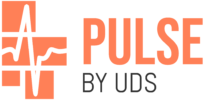Health screenings are a powerful tool in preventive healthcare, designed to detect early signs of disease and improve outcomes through timely intervention. Despite their proven benefits, several persistent myths discourage individuals from participating in essential screenings or lead to misguided expectations. These misconceptions can result in delayed diagnoses, unnecessary stress, and financial burdens.
In This Article
In this article, we will explore five widespread myths about health screenings, providing evidence-based insights to help readers make informed decisions about their healthcare. By debunking these myths, individuals can better understand the role of screenings and adopt a proactive approach to maintaining their well-being.
Myth 1: “I Am Too Young and Healthy to Need Health Screenings”
Many people believe that health screenings are only necessary for older adults or those with existing health conditions. However, this misconception ignores the critical role of early detection in preventing and managing diseases.
Why Early Screenings Matter
Even seemingly healthy individuals may have risk factors they are unaware of. For example, young adults with a family history of heart disease, cancer, or diabetes could benefit from routine screenings to identify warning signs early. Conditions such as high cholesterol, hypertension, and certain cancers often develop silently, presenting no symptoms until they reach advanced stages.
A 2024 study published in JAMA Internal Medicine found that early cholesterol screening in individuals under 40 helped reduce heart attack risk by 27% when paired with lifestyle interventions. Similarly, the U.S. Preventive Services Task Force (USPSTF) recommends that adults start colorectal cancer screening as early as age 45 due to rising rates of early-onset cases.
Actionable Advice
- Know Your Risk Profile: Discuss your family history and lifestyle with your healthcare provider to determine which screenings are appropriate for you.
- Start Early for Preventive Benefits: Conditions like hypertension, type 2 diabetes, and some cancers are increasingly common in younger populations, making early detection crucial.
Myth 2: “One Health Screening Can Detect Everything”
Some individuals assume that a single, comprehensive test can reveal all potential health risks. Unfortunately, no universal screening exists that can detect every condition.
The Limits of All-in-One Testing
Screenings are designed to target specific conditions based on risk factors such as age, sex, and family history. For example, a mammogram effectively detects breast cancer, while a colonoscopy identifies colorectal cancer. Comprehensive blood panels may offer broad insights but cannot replace specialized tests for specific conditions.
The following table illustrates how different screenings are targeted based on individual risk factors:
| Screening Type | Purpose | Common Risk Factors |
|---|---|---|
| Blood Pressure Check | Detect hypertension | Age, Obesity, Stress |
| Lipid Panel (Cholesterol) | Assess heart disease risk | Diet, Inactivity, Genetics |
| Colonoscopy | Detect colorectal cancer | Age, Family History |
| Pap Smear | Identify cervical abnormalities | HPV Infection, Sexual Activity |
| CAC Score (Heart Scan) | Measure calcium in arteries | Smoking, Diabetes, Obesity |
Actionable Advice
- Focus on Targeted Screenings: Discuss your health concerns with a provider who can recommend the most appropriate tests for your needs.
- Understand Screening Limitations: Recognizing that no test is foolproof can help manage expectations and reduce anxiety.
Myth 3: “Screening Always Leads to Better Outcomes”
While early detection is critical for some conditions, screening is not always beneficial or necessary. In certain cases, screenings may result in false positives, overdiagnosis, or unnecessary treatments that pose their own risks.
The Risks of Overdiagnosis
Overdiagnosis occurs when a screening identifies a condition that may never progress to cause harm. For example, some prostate cancers detected through PSA testing grow so slowly that they pose minimal risk. However, treatment can still result in complications such as incontinence or erectile dysfunction.
A 2023 report from The British Medical Journal found that overdiagnosis in breast cancer screening may account for up to 20% of identified cases, leading to unnecessary interventions.
Actionable Advice
- Weigh the Risks and Benefits: Discuss the potential outcomes of a screening with your healthcare provider to make an informed decision.
- Prioritize Evidence-Based Screenings: Focus on tests recommended by trusted organizations like the USPSTF or CDC.
Myth 4: “Screening Tests Are Always Accurate”
It’s a common misconception that screenings deliver perfect results. In reality, no test is infallible, and errors like false positives or false negatives can occur.
Understanding Test Accuracy
- False Positives: A result indicating disease when no illness is present. This can cause anxiety, unnecessary follow-up tests, and treatments.
- False Negatives: A result failing to detect a condition that is present, potentially delaying critical treatment.
For example, mammograms miss approximately 1 in 8 breast cancers, while pap smears can return false-negative results due to sampling errors.
How to Improve Screening Reliability
- Follow Up on Abnormal Results: Seek confirmatory tests when a screening returns concerning results.
- Ask About Test Sensitivity and Specificity: Higher sensitivity reduces false negatives, while higher specificity reduces false positives.
Myth 5: “Health Screenings Are Primarily for Identifying Diseases”
While detecting illness is a key function of screenings, their benefits extend beyond diagnosis. Screenings also provide valuable insights for disease prevention and wellness planning.
How Screenings Promote Wellness
Comprehensive screenings often reveal modifiable risk factors such as high cholesterol, vitamin deficiencies, or early signs of metabolic syndrome. Identifying these concerns enables individuals to adopt preventive strategies such as dietary changes, exercise, or stress management.
For instance, body composition analysis through DEXA scanning can highlight muscle imbalances or excess visceral fat, allowing for targeted fitness interventions.
Actionable Advice
- Use Screening Results to Build Health Goals: Incorporate the insights gained from screenings into your lifestyle decisions.
- Embrace a Preventive Mindset: View screenings as a proactive tool rather than just a diagnostic measure.
Practical Strategies for Navigating Health Screenings
To make informed decisions about health screenings, consider the following steps:
- Consult Reliable Sources: Refer to guidelines from organizations such as the CDC, USPSTF, or American Cancer Society to understand recommended screenings for your age and risk profile.
- Discuss Screening Frequency with Your Doctor: Avoid over-screening, which can lead to unnecessary procedures, or under-screening, which increases the risk of undetected conditions.
- Understand Financial Coverage: Many preventive screenings are covered by insurance under the Affordable Care Act, reducing out-of-pocket costs.
- Track Your Screening History: Maintain a personal record of past screenings to ensure you stay on track with recommended schedules.
Conclusion
Health screenings are invaluable for detecting potential health risks early, empowering individuals to take control of their well-being. However, persistent myths about screenings can lead to confusion, anxiety, and missed opportunities for early intervention. By understanding the limitations and benefits of screenings, individuals can make informed decisions that align with their personal health goals.
The key to successful preventive care lies in a balanced, evidence-based approach that prioritizes personalized screenings, informed discussions with healthcare providers, and proactive wellness strategies.
References
- Mayo Clinic Healthcare. (2024). Screening for Wellness Instead of Sickness.
- Cleadoc. (2022). 5 Health Screening Myths You Need to Stop Listening To!
- Journal of the American Medical Association (JAMA). (2024). Early Cholesterol Screening and Heart Attack Risk Reduction.
- U.S. Preventive Services Task Force (USPSTF). (2023). Updated Recommendations for Colorectal Cancer Screening.
- The British Medical Journal. (2023). Overdiagnosis in Cancer Screening: A Growing Concern.









0 Comments